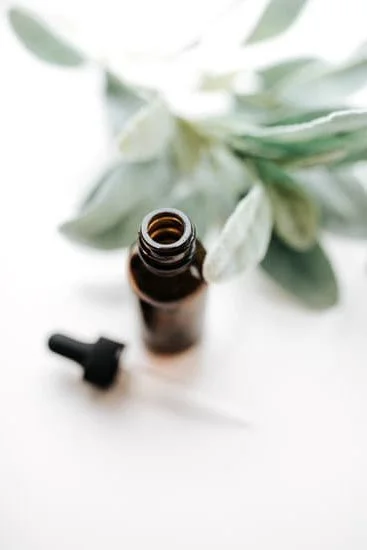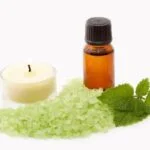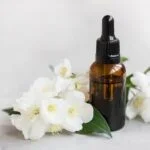Essential oils have been used for centuries for various therapeutic and medicinal purposes, including aromatherapy. Aromatherapy is the practice of using essential oils to improve physical, mental, and emotional well-being. In this article, we will explore the potential benefits of essential oil aromatherapy for treating dryness in the skin, hair, and air.
Dryness can be a common issue that many people face, whether it’s dry skin, brittle hair, or even dry indoor air. Understanding the causes and symptoms of dryness is important in addressing these concerns effectively. Essential oils are known for their moisturizing properties and have been used to combat dryness for many years.
Throughout this article, we will delve into the different essential oils known for their moisturizing properties and discuss various aromatherapy techniques such as diffusers, massage oils, and inhalation that can be used to combat dryness. Additionally, we will present scientific studies and evidence supporting the effectiveness of essential oil aromatherapy for treating dryness.
If you’re interested in learning more about how essential oil aromatherapy may help with dryness or if you’re looking for tips on using essential oils for this purpose, then read on to discover some potential solutions for your concerns.
Understanding Dryness
Dryness can affect various parts of our body, including the skin, hair, and even the air in our environment. Understanding the underlying causes and symptoms of dryness is crucial in addressing these issues effectively.
Causes of dry skin can range from environmental factors such as low humidity or harsh weather conditions to internal factors like dehydration and certain medical conditions. Similarly, dry hair can be caused by excessive heat styling, overwashing, or nutrient deficiencies. On the other hand, dry air in our surroundings can be a result of central heating or air conditioning systems.
Symptoms of dry skin may include itchiness, redness, flakiness, and rough patches. Dry hair may appear dull, brittle, and prone to breakage. As for dry air, it can lead to respiratory issues or aggravate existing conditions such as allergies or asthma.
To combat these concerns related to dryness, essential oil aromatherapy offers a natural and holistic approach that has been found to be beneficial for many individuals seeking relief.
- Symptom relief: Essential oils such as lavender and chamomile have soothing properties that can help alleviate itchiness and inflammation associated with dry skin.
- Hydration: Oils like coconut and argan are known for their moisturizing benefits for both skin and hair.
- Air humidification: Essential oils like eucalyptus or peppermint can be used in a diffuser to add moisture to the air while also offering respiratory support.
Utilizing essential oil aromatherapy as part of a holistic approach to managing dryness can provide relief without resorting to harsh chemicals often found in commercial products. This gentle yet effective method can be a natural solution for those looking to soothe their skin, nourish their hair, and improve the overall quality of their indoor environment.
The Power of Essential Oils
Essential oils have been used for centuries for their aromatic and therapeutic properties. When it comes to addressing dryness, essential oil aromatherapy can be a natural and effective solution. With the right combination of essential oils, it is possible to combat dry skin, hair, and even improve the air quality in your home. This section will delve into the specific essential oils known for their moisturizing properties and how they can help with dryness.
There are several essential oils that are particularly effective in alleviating dryness. For dry skin, oils such as lavender, chamomile, and rose are known for their hydrating and soothing properties. These oils can not only add moisture to the skin but also help to reduce inflammation and redness. When it comes to dry hair, oils like coconut, argan, and jojoba are excellent choices due to their ability to deeply penetrate the hair shaft and provide nourishment.
In addition to addressing dry skin and hair, certain essential oils can also help improve the air quality in your home by adding moisture to the air. Oils such as eucalyptus, peppermint, or tea tree oil can be added to a diffuser to create a refreshing and hydrating atmosphere in your living space.
Studies have shown that essential oil aromatherapy can be beneficial for treating dryness. Research has demonstrated that certain essential oils possess hydrating properties that can effectively address dry skin and hair. Whether used through inhalation, topical application with carrier oils, or diffusion methods like using a diffuser or humidifier, essential oils have the potential to alleviate dryness effectively.
| Essential Oil | Moisturizing Properties |
|---|---|
| Lavender | Hydrating and soothing; reduces inflammation |
| Coconut | Penetrates hair shaft; provides nourishment |
| Eucalyptus | Adds moisture to the air; refreshing atmosphere |
Aromatherapy Techniques
When it comes to using essential oils for aromatherapy, there are several methods that can be effective in treating dryness. These techniques allow the therapeutic properties of essential oils to be released into the air, providing a natural and holistic approach to moisturizing the skin, hair, and even the air itself. Here are some popular aromatherapy techniques for using essential oils:
- Diffusers: One of the most common ways to use essential oils for aromatherapy is by using a diffuser. This device disperses the essential oil molecules into the air, allowing them to be inhaled and absorbed through the respiratory system. This can help hydrate dry skin and hair, as well as alleviate dryness in the surrounding environment.
- Massage Oils: Another popular method of using essential oils for aromatherapy is through massage oils. By blending essential oils with carrier oils such as coconut or almond oil, you can create a moisturizing massage oil that can be applied directly to the skin. This not only helps hydrate dry skin but also allows for a relaxing and therapeutic experience.
- Inhalation: Inhaling essential oils directly from the bottle or by adding a few drops to hot water can also be an effective way to benefit from their moisturizing properties. Inhaling essential oils can help relieve dryness in the respiratory system while also providing a sense of relaxation and well-being.
These techniques offer versatile ways to incorporate essential oil aromatherapy into your daily routine, making it easy to experience the potential benefits for treating dryness in various forms.
Overall, utilizing these aromatherapy techniques with specific essential oils known for their moisturizing properties has shown promising effects in combating dryness. Whether through diffusion, topical application, or inhalation, incorporating these methods into your wellness routine may provide relief from dry skin, hair, and air.
Additionally, it’s important to note that when using essential oils for aromatherapy to address dryness concerns, it’s crucial to dilute them properly and follow safety precautions to avoid any adverse reactions. Always consult with a healthcare professional or certified aromatherapist for personalized recommendations based on your specific needs and concerns related to addressing dryness with essential oil aromatherapy.
Research and Evidence
There have been numerous scientific studies conducted to evaluate the effectiveness of essential oil aromatherapy for treating dryness in skin, hair, and even the air. One such study published in the Journal of Clinical Aromatherapy found that certain essential oils, such as lavender and chamomile, exhibited moisturizing properties when used in aromatherapy. The study showed that participants who used these essential oils experienced improved hydration levels in their skin, leading to a reduction in dryness and flakiness.
In addition to this, a systematic review published in the International Journal of Molecular Sciences highlighted the potential of essential oils, including rosehip and argan oil, for promoting skin hydration and reducing dryness. The review analyzed several clinical trials and laboratory studies that demonstrated the ability of these essential oils to enhance skin barrier function, increase moisture retention, and alleviate symptoms of dry skin conditions.
Furthermore, a randomized controlled trial published in Evidence-Based Complementary and Alternative Medicine investigated the effects of aromatherapy using essential oils on hair dryness. The study found that participants who underwent aromatherapy treatments with specific essential oils experienced improvements in hair moisture levels and reduced scalp dryness. These findings suggest that essential oil aromatherapy may indeed be effective in addressing dryness not only in the skin but also in the hair.
Overall, these scientific studies provide compelling evidence supporting the use of essential oil aromatherapy for treating dryness. As more research continues to emerge in this field, it becomes increasingly clear that essential oils can play a valuable role in providing moisture and alleviating dryness-related symptoms when utilized in aromatherapy practices.
Best Practices
Dilution Ratios
When using essential oils for aromatherapy to treat dry skin, hair, or air, it is important to dilute the essential oils properly. Essential oils are highly concentrated and can be irritating to the skin if used undiluted.
The recommended dilution ratio for most essential oils is 2-3 drops of essential oil per teaspoon of carrier oil. Carrier oils such as coconut oil, almond oil, or jojoba oil can help spread the essential oils across a larger surface area and reduce the risk of skin irritation.
Safety Precautions
While essential oils have many benefits, they can also pose potential risks if not used properly. It is important to perform a patch test before using any new essential oil to check for any allergic reactions or sensitivities. Additionally, some essential oils are not safe for use during pregnancy or with certain medical conditions. It’s crucial to research each individual essential oil and consult with a healthcare professional before use, especially if you have any underlying health concerns.
Recommended Applications
There are various ways to incorporate essential oils into your daily routine to combat dryness. For dry skin, adding a few drops of lavender or geranium essential oil to a moisturizer or bath can help hydrate and nourish the skin.
When dealing with dry hair and scalp, combining a few drops of rosemary or cedarwood essential oil with a carrier oil for a scalp massage can promote healthier hair growth and alleviate dryness. Using an aromatherapy diffuser with a blend of citrus and minty essential oils can also help add moisture to the air in dry indoor environments.
It is important to note that individual responses
Conclusion
In conclusion, essential oil aromatherapy has shown promising potential in helping with dryness. The moisturizing properties of certain essential oils can effectively address the symptoms of dry skin, hair, and air. Utilizing various aromatherapy techniques such as diffusers, massage oils, and inhalation can provide relief and restore the moisture balance in the affected areas.
Scientific studies and evidence have supported the effectiveness of essential oil aromatherapy for treating dryness. Research has demonstrated the hydrating and soothing effects of essential oils, making them a viable option for individuals seeking natural remedies for their dryness concerns. It’s important to note that while essential oils can be beneficial, it is crucial to follow best practices, including dilution ratios and safety precautions, when using them for aromatherapy.
For those interested in trying out essential oil aromatherapy for dryness, it is recommended to seek guidance from professionals or experienced practitioners. Experimenting with different essential oils and application methods can help individuals find the most suitable approach for their specific needs. By incorporating essential oil aromatherapy into their self-care routine, individuals may experience improvements in their overall dryness issues and enjoy the therapeutic benefits of these natural remedies.
Frequently Asked Questions
What Essential Oils Are Good for Dryness?
Some essential oils that are good for dryness include lavender, chamomile, sandalwood, and geranium. These oils can help moisturize the skin and provide relief from dryness.
Are Essential Oils Hydrating?
Essential oils can be hydrating when used correctly. Oils like coconut, argan, jojoba, and rosehip can help lock in moisture and improve the skin’s hydration levels when applied topically.
What Essential Oil Is Best for Dry Air?
The best essential oil for dry air is eucalyptus. Its anti-inflammatory properties can help soothe respiratory symptoms caused by dry air. It also has a refreshing scent that can improve the overall air quality in a room.

Are you looking for a natural way to improve your health and wellbeing?
If so, aromatherapy may be the answer for you.





